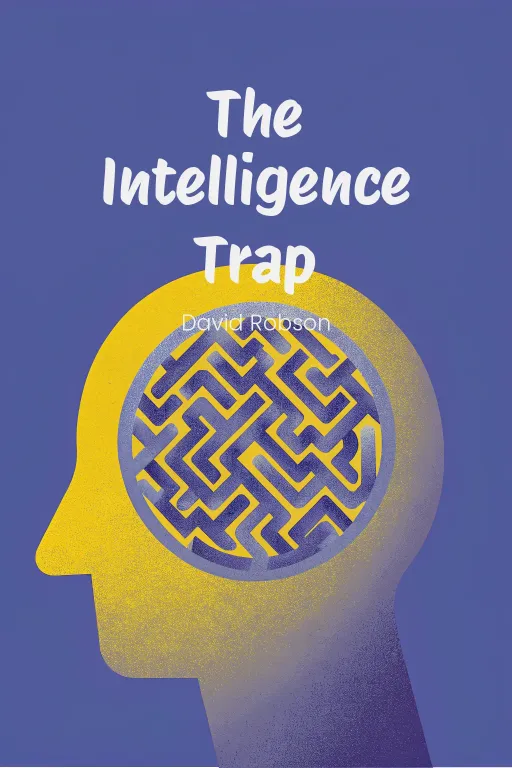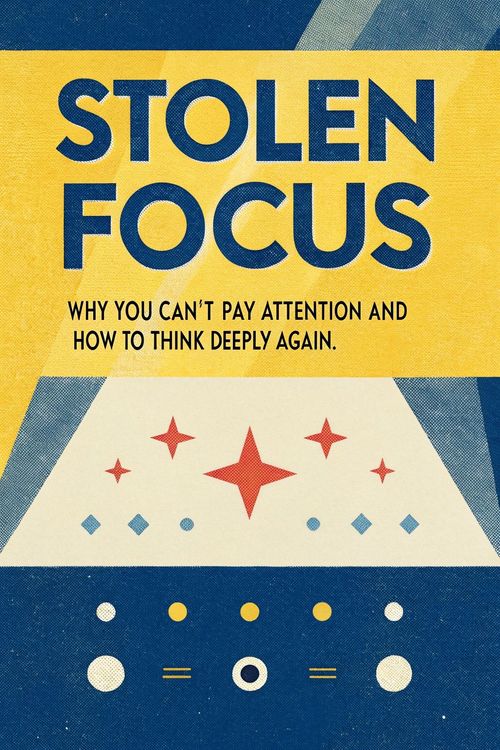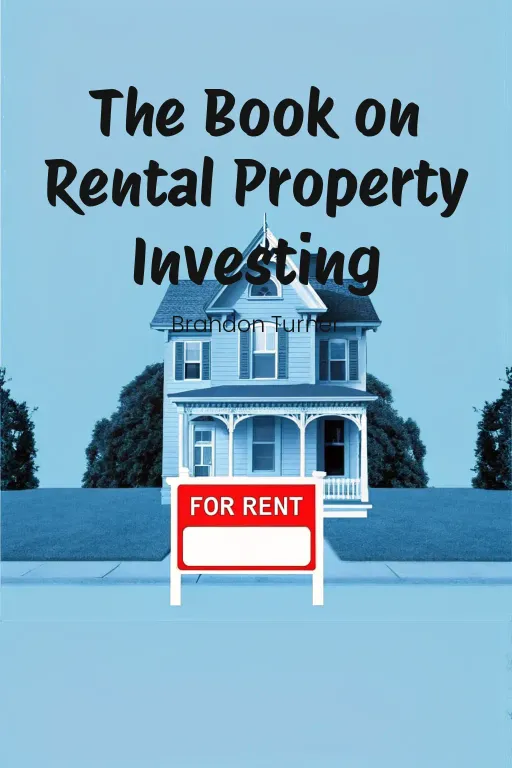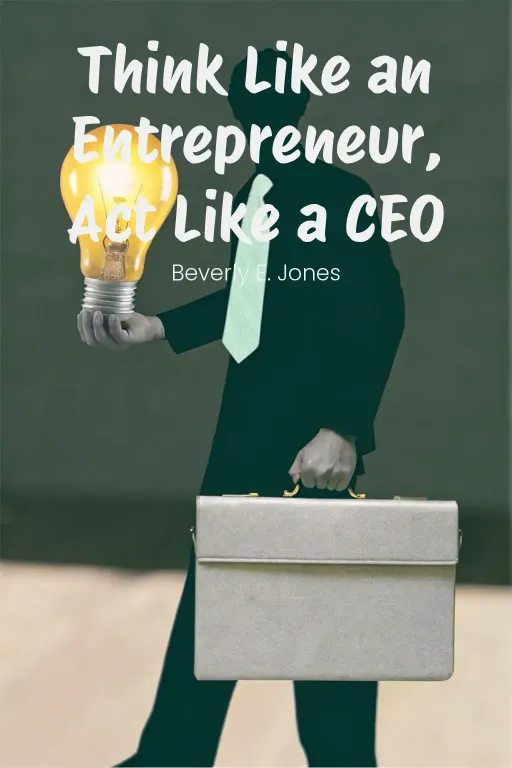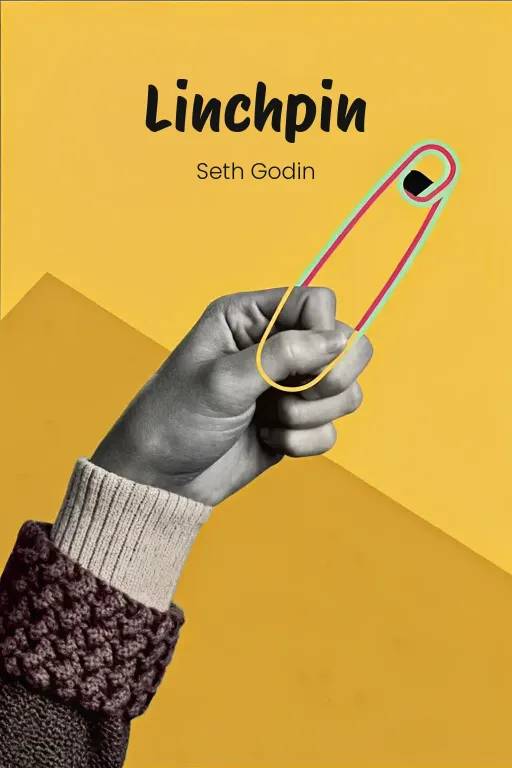
Thrive: Turn Change Into Your Superpower
Podcast by Beta You with Alex and Michelle
8 Superpowers for Thriving in Constant Change
Thrive: Turn Change Into Your Superpower
Part 1
Alex: Hey everyone, welcome back! Today we're tackling something super relevant: how to really thrive when everything around us just keeps changing. I mean, let’s be real, feeling overwhelmed by uncertainty? That's basically a universal experience these days. But what if we could not just handle all this chaos, but actually, you know, grow because of it? Michelle: Exactly, Alex. It honestly feels like the only constant is change, right? Technology, social norms… it's a lot. So, what's our solution today? Are we just going to tell everyone to chill out and, like, "go with the flow"? Alex: We can do better than that. We're talking about Flux: 8 Superpowers for Thriving in Constant Change by April Rinne. Honestly, this book is a game-changer. It’s not just about passively accepting change, it's about fundamentally rethinking how we perceive uncertainty. Rinne introduces this idea of a "Flux Mindset," which helps us see change as, well, an opportunity, not some looming threat. And she gives us eight actionable superpowers to actually make that shift. Michelle: Superpowers, you say? sounds like we're assembling the self-help Avengers. So, are we talking x-ray vision to spot those curveballs life throws at you? Alex: Not exactly x-ray vision, but close! These superpowers help us adjust how we think about things like trust, how adaptable we are, even our own limitations. For example, think about learning to be okay with contradictions or deciding what “enough” actually means to you. Michelle: Okay, those do sound pretty interesting, I’ll admit. What's the plan for today? Are we diving straight into these superpowers? Alex: Almost! First, we're going to break down the core idea - the Flux Mindset itself. Then, we’ll dig into the eight superpowers that help us turn uncertainty into possibility. And finally, we'll look at how these ideas can actually change how we approach the big stuff: work, relationships, the communities we're part of. Think of this as your essential toolkit for living well in a world that's, you know, constantly in motion. Michelle: A toolkit, huh? Alright, I'm intrigued. Let's see what's in it. Let's get into this whole "change as a superpower" concept.
The Flux Mindset
Part 2
Alex: Okay Michelle, let's dive into the Flux Mindset. Basically, it's a whole new way of thinking about change. Instead of seeing change as disruptive or scary – and let’s be honest, most of us do – April Rinne wants us to see it as “inevitable”. And here's the interesting part, as an opportunity for growth. Michelle: Inevitable, got it. My bad back reminds me of that daily. But opportunity? Seriously? Most people don't see their lives falling apart and think, "Great! Time for a new chapter!" Isn't that a bit optimistic? Alex: Totally get why you'd say that, and that's why this mindset is so necessary. We naturally fight change, holding onto old ideas – scripts – about what success “should” look like: stable career, predictable life, a clear end goal. The Flux Mindset challenges that. It's about unlearning those scripts and adapting smoothly to uncertainty, almost like writing the rules as we go. Michelle: So, it's rewiring our "fight or flight" response when life throws a curveball. But why is this so important now? Humans have always dealt with change. What makes the Flux Mindset so urgent? Alex: Excellent question. April Rinne addresses this directly. The speed of change today is unlike anything we've seen before. Think about it. Technology, globalization, climate change—everything is reshaping so fast. The old script of "get a good job and stay there" doesn't apply anymore. A Flux Mindset gives us a way to navigate this fast-paced, interconnected world without getting lost. Michelle: So, it's like upgrading your operating system to run the latest software. The old framework just can't handle the speed. Alex: Exactly! Look at COVID-19. It showed us how quickly things can change on a global level. Some people were stuck and overwhelmed, but others – often those with more flexible mindsets – found ways to adapt. Whether it was switching to remote work or rethinking work-life balance, those who embraced the fluidity adapted much more easily. Michelle: I remember that. It wasn’t just individuals either; businesses and entire industries had to pivot practically overnight. The ones waiting for things to "go back to normal" struggled a lot more than those who asked, "Okay, so what does the new normal look like, and how can we make it work?" Alex: Totally! Adaptability is key in the Flux Mindset, and it’s not just about surviving, it’s a growth strategy. By embracing change, we open ourselves up to innovation, creativity, and even redefining what success means to us personally. Michelle: Okay, playing devil’s advocate again. People “like” stability. It's human nature. Constant reinvention isn't for everyone. So, how do we even begin to flip that switch in our heads? Alex: Great point. Rinne offers strategies to help us cultivate this mindset. One is rewriting our personal scripts – the stories we tell ourselves about stability, accomplishment, and happiness. The traditional "climb the corporate ladder" idea of success, for instance, doesn't allow for the exploratory paths that flux invites. If we redefine success as less about control and more about adaptability and curiosity, then uncertainty becomes less scary. Michelle: I like this "rewrite your script" idea in theory, but let's get practical. How does someone stuck in a rigid mindset even start to unpack all that? Alex: One thing Rinne suggests is reframing uncertainty itself. Instead of seeing it as the enemy, see it as an opportunity for creativity. Ask yourself questions like: What about this change am I resisting? What new opportunities could it unlock for me? Simple shifts in perspective can turn fear into curiosity. Michelle: Ah, so it's less "Oh no, the road just ended," and more "Hey, where does this new path lead?" Embracing detours as part of the adventure instead of roadblocks. I like that – it’s almost like mindfulness for life transitions. Alex: Exactly. And going back to what you said about craving stability, that's where emotional resilience comes in. Rinne says resilience isn't just about bouncing back after challenges, it’s about leaning into changes and using them to your advantage. Through things like mindfulness, daily reflection, or even journaling, we can train ourselves to stay grounded when things feel unstable. Michelle: So, by strengthening those emotional muscles, you're less likely to panic when things get uncertain. Sounds like mental CrossFit! Alex: Perfect analogy! Another important strategy Rinne talks about is recalibrating expectations. Society still equates success with permanence – like staying in one job or hitting certain milestones – but those definitions don't work now. Instead, she suggests valuing diversity in skills, experiences, and even identities over chasing fixed goals. Michelle: So, success isn't a pot of gold at the end of the rainbow anymore. It's how you navigate, even when the rainbow changes direction. Alex: Exactly. When you see life's constant flux as a chance to learn, adapt, and grow, uncertainty no longer feels like a dead end. It becomes a pathway to something new.
The 8 Flux Superpowers
Part 3
Alex: Absolutely! So, understanding this Flux Mindset really sets the stage for using April Rinne's actionable strategies. Once we kind of get our heads around the mindset, diving into her eight superpowers is the next logical thing to do. And these aren’t just, you know, abstract ideas; they're actually practical tools to navigate constant change with more confidence. Michelle: Okay, so we're moving from theory to doing something—and that's exactly how I like it. But let me guess, Alex, are these superpowers, life hacks, but on a bigger level? Where should we even begin? Alex: Let's start with the first Flux Superpower: “Run Slower”. This pushes back against our society’s constant push for speed. While the world cheers on "faster, bigger, more," Rinne says that real growth happens when we allow ourselves to slow down. It’s about making space to think things through and reflect creatively. Michelle: Slow down? I can already hear some listeners now, "Wait a minute, I'm already swamped as it is!" But I'm guessing this is about something deeper than just avoiding burnout, right? Alex: Exactly That's right. It's not just about resting, although that's part of it—it's about being deliberate with your pace. By running slower, we actually make room for critical, that is long-term thinking instead of just reacting to whatever comes up. Take, for example, that entrepreneur Rinne talks about in Silicon Valley. Their company was doing great financially, but they were about to burn out completely. When they took a step back—went to mindfulness retreats and set aside downtime—they not only figured out their priorities, they became more productive, too. Michelle: So, you're saying there's power in pausing. But really, how do people even begin to step off this "go-go-go" life without worrying about falling behind? Alex: Great question. Rinne suggests a few good ways to do it. Like, mindfulness practices—doing breathing exercises or taking even a five-minute meditation break during work—can help you stay in the moment. Then there's “digital detoxes”, disconnecting from notifications to really focus. And, most important, redefining what success means. Instead of seeing it as how fast you finish tasks, focus on quality and sustainability. Michelle: You know, Alex, it's that redefining success that gets me. It's “really” hard to let go of the idea that speed equals success, especially because most work environments reward fast results, not thoughtful ones. So how do we deal with places that don’t seem to support this idea? Alex: That’s a “really” good point, Michelle. It takes some courage to do this in places that are all speed, all the time. But Rinne points out that even small changes, it blocking out "no-meeting zones" on your schedule, or rethinking deadlines to be more realistic, can change not only your personal pace but maybe even show others a better way, too. It's about starting a chain reaction. Michelle: Okay, that makes sense—slowing down on purpose to move smarter, not just faster. So what's the next superpower? Alex: The second superpower is “See What’s Invisible”. Unlike the first one, which is about pace, this one's about how we see things. It's about “really” noticing the little things and patterns that others don't--like emotions, hidden stuff, opportunities that are just under the surface. Michelle: Seeing the invisible…now that sounds kind of philosophical. It reminds me of the phrase, "the devil's in the details." But Alex, how do you actually do this? Alex: Well, Rinne uses the Zulu greeting “Sawubona”—which means, "I see you"—to explain this idea. It's not just saying hello; it’s “really” seeing someone's vulnerabilities, feelings, and who they “really” are. For example, in organizations, this might mean like making anonymous feedback available so unspoken problems can be surfaced among team members. She talked about a company that uncovered dissatisfaction in workplace with tools like that; and by looking at those hidden things, that company fostered better morale and eventually found innovative solutions. Michelle: So it’s about making us more aware in relationships and environments. I get it. But how do you even train yourself to see what others miss? Alex: Emotional intelligence training is important—learning to understand non-verbal communication and developing empathy. Another thing you can do is practice cultural insights, borrowing from “wabi-sabi”, that Japanese idea of seeing beauty in imperfection. It's learning to see the beauty—or the possibility—in what's often overlooked. when looking at larger systems, there’s value in doing "inclusion audits," that can help to find any gaps in representation that might go unnoticed. Michelle: Got it—so while, you know, everyone else is hyper-focused on what's right in front of them, you're taking a step back and seeing what's happening way back in the cut. But I feel like this superpower would make people uneasy. Does Rinne talk about how to deal with that discomfort? Alex: Absolutely, in fact that discomfort is part of it. Noticing what's invisible often means dealing with biases, assumptions, or emotional blind spots—which aren't easy. But getting better awareness “really” expands your view and allows for deeper, more productive connections. Michelle: Okay, so these first two are starting to show a better picture: Slow down, take your time so you can see more. Alright, what's next? Alex: Okay, the third superpower: “Get Lost”. This one might be my favorite because it’s so backwards. Most of us are scared of being disoriented, but Rinne says it's a chance for self-discovery and innovation. It’s about deciding to step off the beaten path. Michelle: Ah, here's where people start to sweat. Most of us were trained to always know where we're going, right? "Getting lost" sounds like a nightmare if you like control. Alex: Right. That’s what this superpower makes us examine. Rinne talks about her personal experience of losing her parents in a tragic accident. Her world was turned upside down. But by embracing that feeling and questioning what was next, instead of trying to get back to "normal", she found a greater understanding of what “really” mattered to her. Michelle: That's pretty heavy stuff, and a powerful example. But let's scale that back a bit, because not everyone goes through something so life-altering, right? So what does "get lost" look like in everyday life? Alex: It can be as simple as trying out hobbies you’ve never tried, journaling about times you felt disoriented, or taking literal detours—choosing the road less traveled, whether it’s a different career path, travel experience, or unfamiliar conversations. Michelle: So, in a way, it’s like being curious like a child again. No destination, just leaning on unknowns to see what happens. You know, that actually sounds… nice. Almost freeing. Alex: Exactly! And when we do this regularly, uncertainty becomes less scary and more of a chance to explore. And remember, Michelle, it’s not about losing your way completely—there’s still intentionality here. But it’s changing how you view being “on track.” Michelle: Alright, I'll admit, the idea of getting lost on purpose is starting to grow on me. Should we dive into the next couple of superpowers?
Practical and Collective Applications
Part 4
Alex: So, now that we've clarified these superpowers, the conversation naturally turns to how we apply them in the real world. What's really fascinating about the Flux Mindset is how it goes from being just a personal philosophy to something that can reshape professional cultures, communities, even entire societal systems. Essentially, we're broadening our perspective, connecting how adaptable we are as individuals to how we progress as a society. Michelle: So, we're talking about going from tweaking your own life to transforming a whole workplace or even a community? That’s a big jump. Where do we even start with that? Alex: Well, let’s start with professional environments. Think about it, Michelle—workplaces are where many of us face the most change and the biggest pressure to adapt. Organizations that embrace Flux Mindset principles, like adaptability, collaboration, and trust, aren’t just hoping their employees will adjust. They're actually embedding these values into how they're structured and what they do strategically. Michelle: Alright, lay it on me. How does this Flux-driven makeover happen at work? Are we talking mandatory yoga sessions and beanbag chairs for everyone, or what? Alex: Not exactly! One key strategy is fostering lifelong learning. As industries and technologies keep changing, employees need to constantly upgrade their skills. Take IBM, for example. They saw how AI and automation might disrupt the workforce, so they created the “Skills Academy” to reskill people across the globe. It wasn’t just about staying relevant; it was about empowering employees to see change as a chance to grow. Michelle: That makes sense—keeping your team ahead of the game instead of always playing catch-up. So, am I right in thinking that tools like online courses, workshops, and all these other shiny new tech updates are "really" important here? Alex: Exactly. Platforms like Coursera, Udemy, and even targeted skills assessments help bridge any gaps that arise in these fast-moving industries. But it’s not just about tools, Michelle. It’s also about building a culture that supports continuous development. Because without that supportive environment, even the best programs can fall flat. Michelle: Fair point. So, lifelong learning is one way Flux plays out professionally. But what about collaboration? Everyone throws that word around, but actually getting people from different departments or with different skillsets to work together? That’s a whole other story. Alex: True, but when it’s done right, this kind of cross-department collaboration can be transformative. Think about how Pfizer developed their COVID-19 vaccine. They didn’t keep their scientists, production teams, or marketers separate. Instead, they brought everyone to the table, encouraging rapid innovation by combining expertise from different fields. This interconnected approach allowed adaptability and creativity to flourish, even under intense pressure. Michelle: So, the ultimate teamwork remix. But how do you nudge organizations that might still be stuck in those old-school hierarchies? You know, the "stay in your lane" kind of culture? Alex: That’s where project rotations and knowledge-sharing initiatives come in. Imagine employees temporarily swapping roles or doing "Lunch & Learn" sessions to share insights—it breaks down silos and sparks fresh ideas across departments. Change doesn’t happen overnight, but taking small steps towards collaboration can create huge shifts over time. Michelle: Alright, so we’ve covered learning and collaboration. But there’s still this major workplace buzzword hanging over us: flexibility. Remote work, hybrid models... Is Flux just another way of saying everyone gets a work-from-home pass? Alex: Not entirely, although flexibility is definitely a key part. Take Twitter, for instance. Their permanent remote work policy wasn’t just about making employees happy; it was strategic. It opened the door to hiring talent from all over the world, which directly enhanced their ability to adapt in an uncertain world. Flexibility isn’t just a perk; it’s adaptability in action. Michelle: Flexibility as a business strategy, I like it. It shifts the focus from “where you work” to “how effectively you work.” But let’s be honest, do all these changes really stick in places that have been rigid for decades? Alex: They can, but it takes deliberate effort. Dynamic goal setting—where you adjust your targets every quarter instead of every year, for example—helps organizations pivot without losing their direction. It’s challenging for rigid systems, but as the pandemic showed us, being inflexible often comes at a much higher cost. Michelle: Speaking of risks, let’s talk about something even more taboo: failure. Because trust me, if someone’s experimenting with new workplace systems, not everything will go according to plan. Alex: That’s such an important point, Michelle. In fact, thriving in a Flux environment means cultivating experimentation, and normalizing failure along the way. Google’s "20% time" policy is a great example. It allowed employees to dedicate 20% of their time to side projects, which led to innovations like Gmail and Google Maps. Michelle: So, they turned failure into fuel for innovation. But not every workplace has Google’s resources. How might smaller teams create that same culture without all the fancy perks? Alex: The principles still apply. Even small things, like hosting “failure celebrations” to reflect on what was learned, create psychological safety. Or setting up innovation labs, which are dedicated spaces where employees can test ideas without all the red tape, can revolutionize how teams approach problem-solving. Michelle: Alright, so that’s the workplace. But Alex, let’s zoom out a bit. What happens when Flux starts reshaping entire communities or social structures? How does this mindset go big picture? Alex: Well, that’s when collaboration and trust-building "really" redefine community resilience. Think about the Transition Town Movement in the UK. Faced with climate challenges, they empowered neighborhoods to create local systems—like food networks and renewable energy initiatives. By supporting grassroots projects and a shared sense of purpose, they transformed flux into an opportunity for community growth. Michelle: I like these localized examples. And it seems like trust plays a central role in all of this, right? Especially when building resilient systems in communities that might be fragmented. Alex: Absolutely. Look at South Africa’s Truth and Reconciliation Commission after apartheid. By creating spaces for open dialogue and sharing the pain, they rebuilt trust, even amidst systemic inequality. It’s a powerful example of how collective Flux works: healing through openness and collaboration. Michelle: Heavy, but inspiring stuff. So, whether it’s transforming our workplaces or our communities, adopting a Flux Mindset doesn’t just impact us as individuals—when done right, it can shape entire ecosystems.
Conclusion
Part 5
Alex: Okay, so to bring it all together, today we “really” dug into this idea of the Flux Mindset – seeing change as fuel for growth, not some scary monster under the bed. We talked about some key things you can actually do, like slowing down when everything's speeding up, paying attention to the little things we usually miss, and even re-thinking what "success" even means. These are tools we can use to handle all sorts of challenges, whether they're personal, work-related, or even in our communities. Michelle: Right, and the thing that “really” grabbed me, Alex, is that this isn't just about passively "going with the flow." There's intention behind it, right? It's about actively changing how we see and react to the unexpected. I mean, think about it – re-shaping how we work, how we collaborate, and even just how much we trust each other... the possibilities are huge, if a little daunting at times. But hey, that's the whole point, isn't it? Getting comfortable with being uncomfortable, because that's where the “real” growth happens. Alex: Couldn’t agree more, Michelle. So, the big takeaway for everyone is this: change isn't going anywhere. It’s all about how we play the game. What if, instead of gripping tightly to what feels safe but “really” isn’t anymore, we actually leaned into the uncertainty with a sense of curiosity? What doors might that open? What could you learn about yourself? That’s the food for thought we want you to chew on until our next chat. Michelle: Exactly. Stay curious, stay flexible, and don't be afraid to dip your toes into the unknown. Hey, it might just be the start of something amazing.


